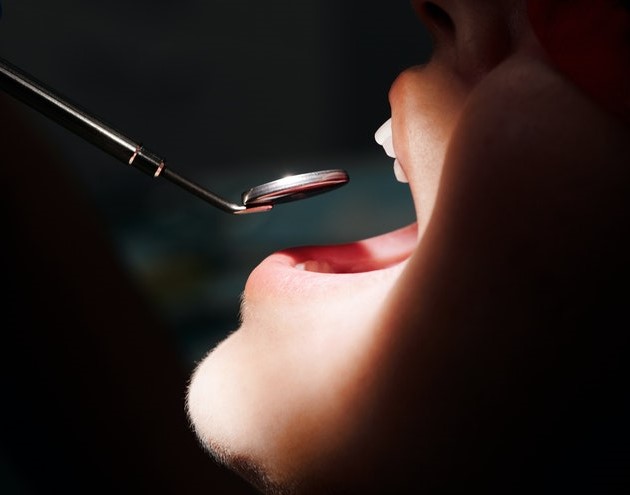There’s tons of misinformation about teeth and dental health out there, so we’re here to set the record straight. Here are five myths about cavities and how you can prevent them.
Cavity Myth #1: Only sugar causes cavities.
We’ve always been told that cavities come from overeating candy and sweets, but sugar isn’t the only culprit. Cavities come from bacteria left on your teeth after eating, which turns into plaque. This bacteria often comes from sugary foods like cookies and candy but can also come from healthy foods like whole grains, fruits, and vegetables. So, cavities can form after eating a wide range of foods, and you should develop the habit of brushing your teeth after every meal to avoid them.
Cavity Myth #2: Only brushing my teeth will prevent cavities.

Brushing your teeth is an essential step in an oral hygiene routine, but it won’t prevent cavities alone. You can still get cavities if you skip flossing, mouth rinse, and your bi-yearly teeth cleaning and checkup. Be sure you are flossing, brushing, and using mouth rinse at least twice daily to avoid oral health problems.
Cavity Myth #3: Kids get more cavities than adults.
This might come as a surprise to some, but kids are not prone to getting more cavities than adults. Children have historically gotten cavities at a higher rate than adults, but not because their teeth are more prone. This myth was busted when the rates of cavities in older adults skyrocketed in recent years.
Cavity Myth #4: You’ll know when you have a cavity.
Unfortunately, the only way you’ll know that you have a cavity is if it has advanced far enough to be painful. If you are going to your bi-annual dental cleaning and checkup, your dentist should catch problems before they become painful. That’s just one reason you should visit your dentist for checkups.
Cavity Myth #5: Placing aspirin next to a cavity will help with the pain.
This one is definitely a myth. First, you must swallow pain relievers for them to work, so don’t use this as a healing method. Instead, call your dentist. If you have a toothache, it might be a cavity or something else. It’s best to address the issue as soon as possible.
If you are experiencing tooth pain, or have missed your six-month checkup, contact our office.





